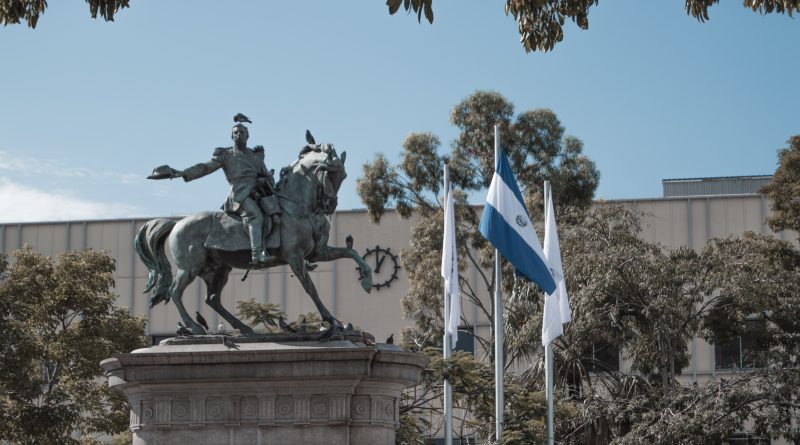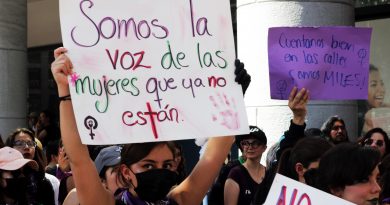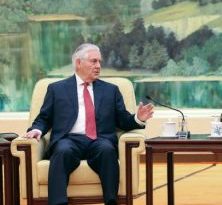El Salvador Declares State of Emergency over Soaring Homicide Rates
Anna Thibodeau
Staff writer
Homicide rates soared in El Salvador during the last weekend of March, with the country reporting 89 homicide deaths in a period of four days compared to 79 homicide deaths in the entire month of February, says NBC News. Friday saw 14 homicides and Saturday saw 62 more, reports The Washington Post. This sparked President Nayib Bukele to declare a 30-day state of emergency, which began early morning on Sunday March 27. The state of emergency suspends four major freedoms: the freedom of assembly, the right to a state sponsored defense upon detention, the inviolability of communication, and it extends the period of administrative detention from 72 hours to 15 days.
NBC News reports that there have been mass arrests of gang members and cordoning off of neighborhoods with high gang activity despite the state of emergency restricting mobility not being approved. The Guardian reports that police are arresting ordinary people who happen to live in gang areas as well, including juveniles, while making pre-trial detention for suspected gang members indefinite. One unnamed woman’s husband, brother, and son were all arrested while unloading a truck of secondhand clothes; the police insulted them and were dismissive when asked why they were being arrested. Bukele claimed that people would still be able to leave their homes to study and to go to religious or sporting events unless they were gang members or seemed suspicious. However, there is no clear definition of what suspicious behavior is, according to Human Rights Watch.
Human Rights Watch, as well as other human rights organizations, have criticized Bukele for human rights violations during this state of emergency. There have been reports of 1,000 to nearly 2,200 gang members arrested, adding to the 16,000 gang members Bukele claims were already detained in prisons. These gang members spend 24 hours a day in their cells and face food rationing across the prison system, only being given two meals a day, says Human Rights Watch.
The Inter-American Commission on Human Rights says, “The measures implemented in the prisons constitute policies of a repressive nature that can result in serious violations of the human rights of persons deprived of liberty,” according to NBC News. On March 28, Bukele tweeted “STOP KILLING NOW [to active gang member] or they will pay,” referring to gang members already in detention. Human Rights Watch says punishing detainees for the actions of people outside of prison is a form of collective punishment that violates human rights.
President Bukele is not folding under criticisms, however, says NBC News. He has called out human rights groups for criticizing him yet doing nothing to help, and has gone so far as to call them gang associates, according to The Guardian. Bukele has been highly popular due to El Salvador’s relatively low homicide rates since his election in 2019. In 2021 there was an average of 18 homicide deaths per 100,000 people, which is the lowest homicide rates in El Salvador since the end of its civil war in 1992, according to France 24. However, Bukele has long been accused of authoritarian tendencies. Bukele has a majority of the Legislative Assembly and recently replaced the country’s attorney general and five Supreme Court judges, says The Washington Post. Al Jazeera reports the Salvadorian government enacted a law on April 5 to “punish anyone who shares information about gangs with up to 15 years in prison.” The law was criticized for being so vague “that virtually anyone can be arrested for speaking or writing about [gangs], putting journalists in the cross hairs.” Bukele claims this new law is a necessary and noble part of #GuerraContraPandillas (War on Gangs).
Multiple theories exist as to the cause of this surge in homicides. William Soriano, a member of Bukele’s New Ideas Party, believes it could be in retaliation for the government taking control of two bus routes in the capital earlier in March, reports NBC News. Gangs extort transportation companies and drivers, and the government takeover removed nearly 300 vehicles from the gangs’ revenue streams. Al Jazeera, however, suggests that the killings may be caused by a glitch in government-gang negotiations. Bukele has said previously that he does not agree with making pacts with gangs. Both The Guardian and Al Jazeera claim, however, he may be secretly negotiating a truce with gang leaders and/or making deals with gang members in prison.



